On December 31, 2023, the Government issued Decree No. 97/ND-CP (Decree 97) amending and supplementing a number of articles of Decree 81 dated August 27, 2021 regulating the mechanism for collecting and managing tuition fees (HP) for educational institutions in the national education system and policies on exemption, reduction of HP, support for learning costs; service prices in the education sector.
Non-autonomous schools collect the highest amount of 2.45 million VND/month
According to Decree 97, the tuition fees for preschool and general education from the 2023-2024 school year will be kept stable at the same level as the 2021-2022 school year. As for public university and vocational education, they will still be increased in the spirit of Decree 81, but the roadmap will be delayed by 1 year. That means the tuition fees for the 2023-2024 school year will be collected at the same level as the 2022-2023 school year as stipulated in Decree 81.
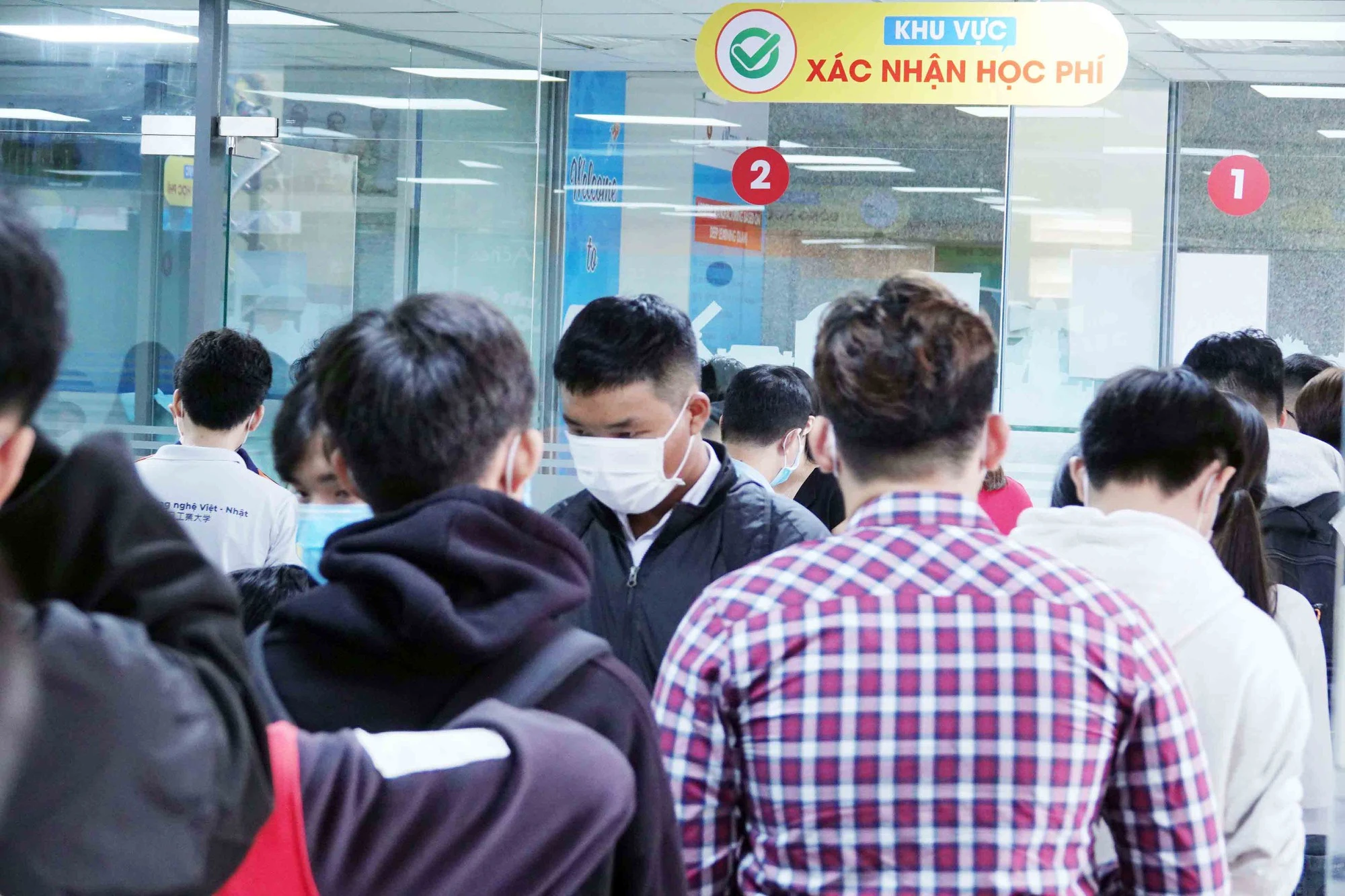
Along with increasing tuition fees, we are implementing policies to exempt and reduce tuition fees for policy beneficiaries and students in difficult circumstances.
According to Decree 81, the highest tuition fee for universities (for institutions that have not yet ensured autonomy in regular spending) for the 2023-2024 school year is for the medical and pharmaceutical sector at VND 2.76 million/month; the lowest is for the arts sector at VND 1.35 million/month. However, Decree 97 has adjusted so that university tuition fees for all sectors are lower than Decree 81.
Specifically, the HP level for the 2023 - 2024 school year according to Decree 97 is as follows (the number in parentheses is the old regulation, according to Decree 81): block I ( science, education and training for teachers): 1.25 million VND/month (1.41); block II (arts): 1.2 million VND/month (1.35); block III (business and management, law): 1.25 million VND/month (1.41); block IV (life sciences, natural sciences): 1.35 million VND/month (1.52); block V (mathematics and statistics, computers and information technology, engineering technology, engineering, production and processing, architecture and construction, agriculture, forestry and fisheries, veterinary medicine): 1.45 million VND/month (1.64); block VI.1 (other health blocks): 1.85 million VND/month (2.09); Block VI.2 (medicine and pharmacy): 2.45 million VND/month (2.76); Block VII (humanities, social and behavioral sciences, journalism and information, social services, tourism, hotels, sports, transportation services, environment and environmental protection): 1.2 million VND/month (1.5).
Extend the increase roadmap to the 2026-2027 school year
Not only does Decree 97 reduce the tuition fee for the 2023-2024 school year compared to Decree 81, it also stipulates a delay in the roadmap for increasing university tuition fees. Instead of reaching the highest mark in the framework set by the Government in the 2025-2026 school year, it will now reach the highest mark in the 2026-2027 school year (see box).
However, according to Decree 97, from the 2027-2028 school year onwards, how university tuition fees will be collected is still unclear. According to Decree 81, from the 2026-2027 school year onwards, public universities will determine their own tuition fees corresponding to their level of financial autonomy and quality assurance, with an increase in tuition fees not exceeding 12.5% per year. However, Decree 97 has abolished this.
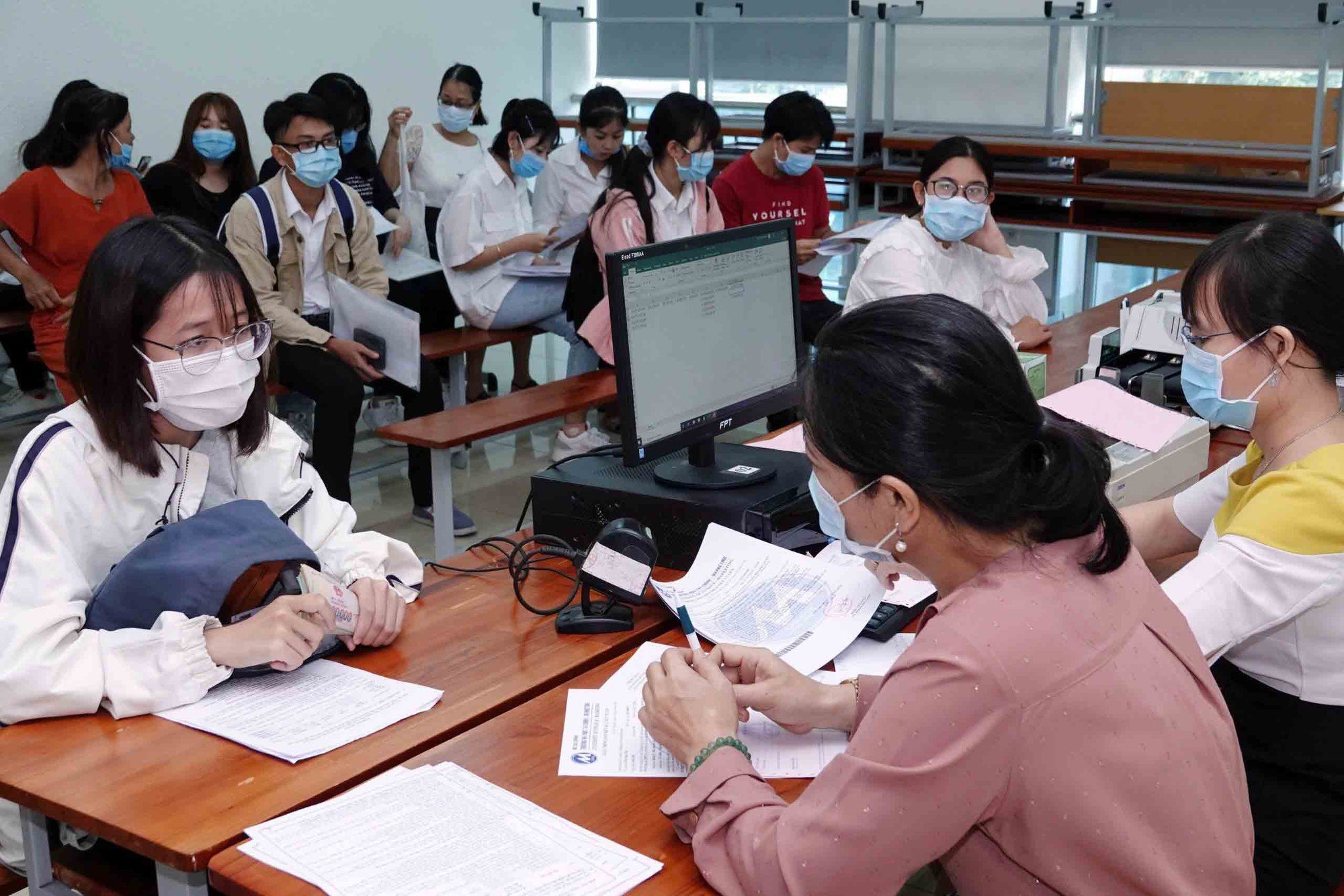
The Government issued Decree 97 to adjust the roadmap for increasing tuition fees appropriately.
However, the above collection rate is for non-autonomous schools. The regulations for autonomous schools (of various levels) stipulated in Decree 81 are still retained for continued implementation. Accordingly, public universities that self-insure their regular expenditures will be determined to have a maximum HP level equal to 2 times the HP ceiling that the Government stipulates for non-autonomous schools, corresponding to each major and each school year.
Universities that are self-sufficient in regular and investment expenditures are determined to have a maximum HP level equal to 2.5 times the above ceiling level. For training programs of public universities that have passed quality accreditation, the university is allowed to self-determine the HP collection level of that program based on the economic and technical norms issued by the university (this regulation is applied to non-autonomous universities).
Tuition fees do not "really increase"
According to Deputy Minister of Education and Training Hoang Minh Son, although Decree 97 was directed by the Government to be developed and issued according to a simplified procedure, during the process of drafting the document, ministries and branches closely coordinated and sought opinions from many groups and individuals to carefully calculate and evaluate the impact of adjusting the curriculum.
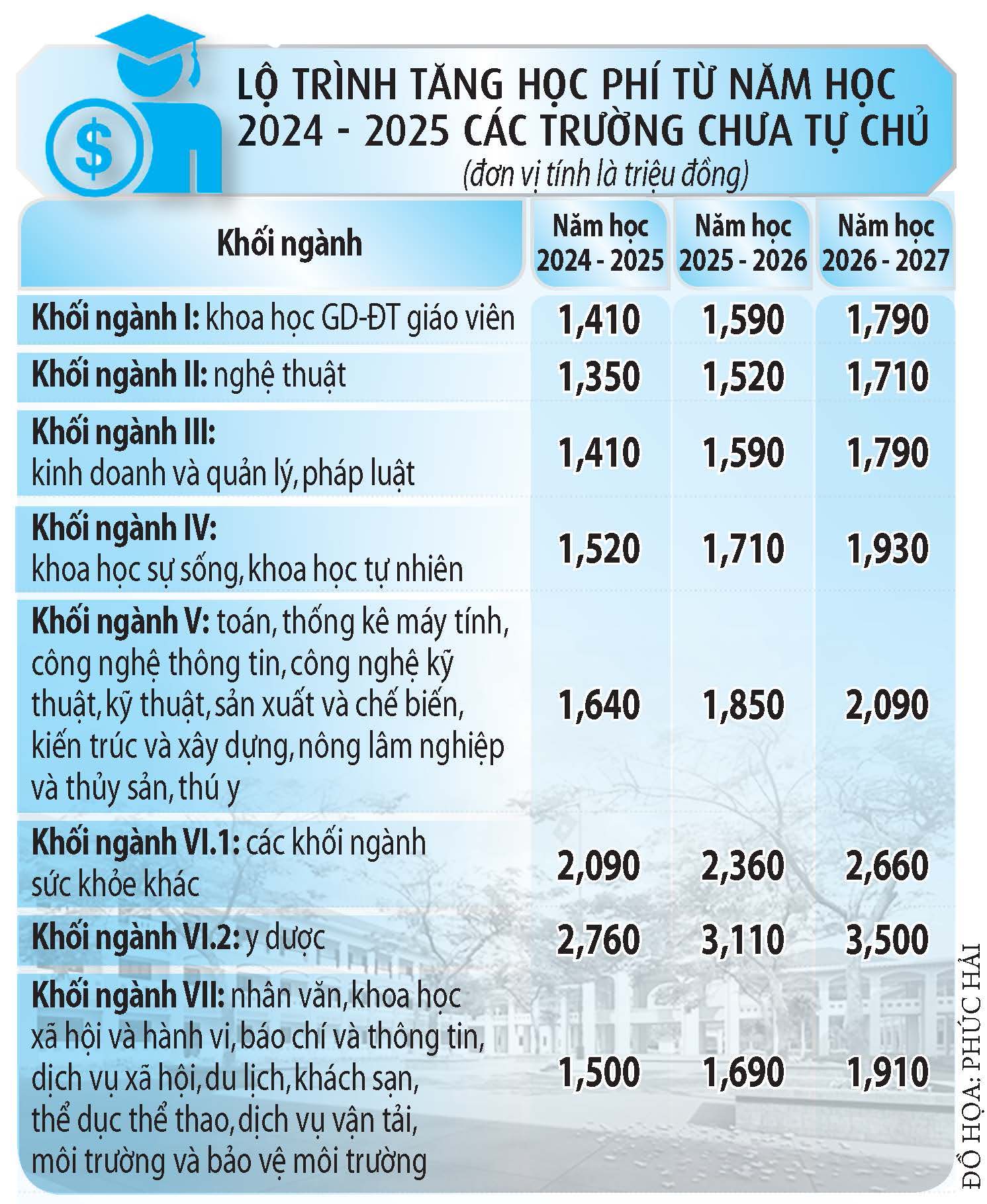
Including assessing the impact of adjusting the HP on the consumer price index (CPI) and the state budget; or taking into account ensuring the implementation of the roadmap for calculating the price of education and training services according to the requirements of Resolution No. 19-NQ/TW dated October 25, 2017 and maintaining resources for educational institutions to improve the quality of education and training, invest in facilities in the context of limited state investment resources, and annual cuts in the regular budget. Along with increasing the HP is the synchronous implementation of HP exemption and reduction policies for policy beneficiaries and students in difficult circumstances.
If we compare the HP ceiling (of the group of schools that have not self-financed regular expenditures) on GDP/capita in 2015 (2015-2016 school year) with 2023 (2023-2024 school year), we see that HP does not "actually increase", but even decreases in most sectors (except medicine and agriculture). "GDP/capita in 2015 was 45.7 million VND, in 2023 it was 101.9 million VND (2.23 times increase). If we take the HP ceiling of several sectors to compare, we can see that clearly. For example, the STEM sector in the 2015-2016 school year was 720,000 VND/month, in the 2023-2024 school year it was 1.45 million VND/month (2.01 times increase)", Mr. Son analyzed.
According to Mr. Son, Resolution No. 19-NQ/TW dated October 25, 2017 requires "by 2021 to complete the roadmap for calculating public service prices (calculating full salaries, direct costs, management costs and asset depreciation) for a number of basic areas such as health care, education and training, and vocational education". Decree 81 was issued on the basis of implementing the direction of Resolution 19, to be applied from the 2021-2022 school year, which stipulates "the HP level for the 2021-2022 school year is equal to the HP level for the 2020-2021 school year; from the 2022-2023 school year, the HP ceiling increases according to the annual roadmap". But due to the Covid-19 pandemic, the Government required public universities to keep the tuition fee level for the 2022-2023 school year stable at the same level as the 2021-2022 school year. Thus, the tuition fee level of public universities has remained stable for 3 school years (2020-2021, 2021-2022 and 2022-2023).
In the 2023 - 2024 school year, if universities return to applying the HP ceiling of Decree 81, the HP collection level will increase quite high compared to the HP level of the 2022 - 2023 school year. Decree 97 was issued to adjust the HP roadmap appropriately, so that the increase is not too high.
Synchronously apply many support policies and HP exemptions
According to Deputy Minister of Education and Training Hoang Minh Son, regulations on support policies and tuition exemptions for priority subjects of Decree 81 continue to be effective.
Subjects exempted from tuition fees include: students with disabilities, ethnic minority students from poor and near-poor households; students majoring in Marxism-Leninism and Ho Chi Minh ideology; students, graduate students, biological researchers majoring in tuberculosis, leprosy, psychiatry, forensic examination, forensic psychiatry and pathology at medical human resource training institutions according to state-ordered quotas; students from very few ethnic minorities; students belonging to subjects of programs and projects exempted from tuition fees according to Government regulations; students studying specialized majors and professions that meet the requirements of socio-economic development, national defense and security according to the provisions of the Law on Vocational Education. In addition, students studying traditional and specialized arts, some arduous, toxic and dangerous professions receive a 70% reduction in tuition fees.
In addition, the state also has many other policies to support students (in addition to the regulations in Decree 81) such as student credit policy; study encouragement scholarship regime, policy scholarships; social assistance policy scholarships for students in remote, isolated and particularly disadvantaged areas...
Source link







![[Photo] Da Nang: Hundreds of people join hands to clean up a vital tourist route after storm No. 13](https://vphoto.vietnam.vn/thumb/1200x675/vietnam/resource/IMAGE/2025/11/07/1762491638903_image-3-1353-jpg.webp)
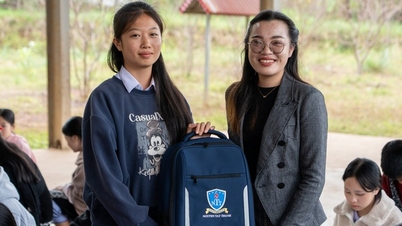




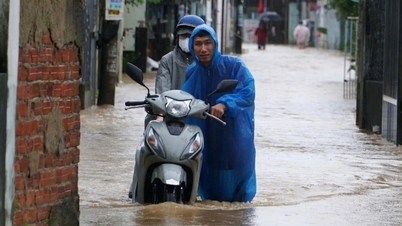

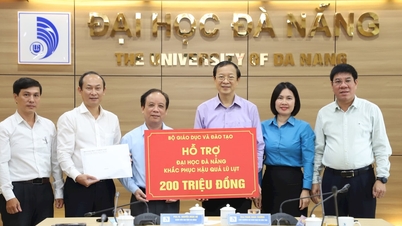







































































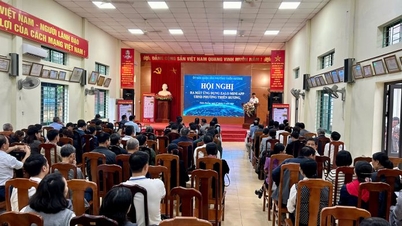






















Comment (0)